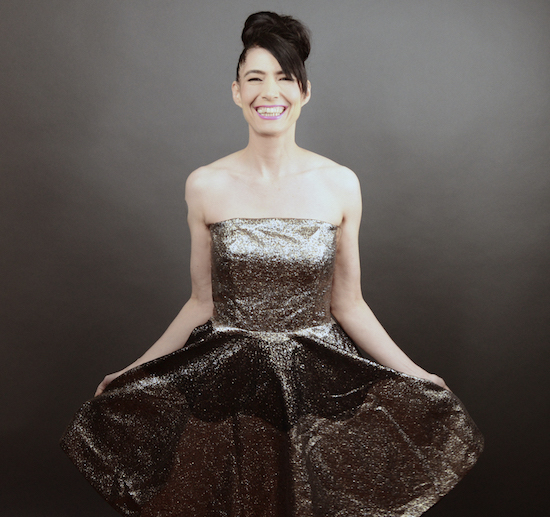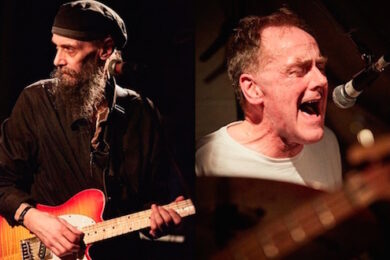Photograph courtesy of Shervin Lainez
I can feel my heart racing as I dial the number to call Kathleen Hanna, the lead singer of The Julie Ruin, Le Tigre and Bikini Kill who started the riot grrrl movement in the 1990s. Hanna used the constant touring to set up grassroots support networks across America, which gave countless young women an avenue to vent frustrations about sexism, abuse and general outsiderness. At a time when the women’s movement had suffered continuous setbacks, she made feminism cool again among the most crucial and hard-to-reach demographic of them all: high-school girls. I discovered Bikini Kill when I was 16 and, like for so many other girls my age, her furious, indignant howls calling for girls to the front, a "revolution girl style now", female friendship and empowerment offered a desperately needed sound(e)scape from the perils of teenage girlhood. Listening to her songs, at least for a few minutes you really felt like you were okay with yourself, your body and your emotions, which made you a rebel girl in a world spoon-feeding you impossible, if not disturbing, ideals.
I wait as the rings repeat each other for what feels like an eternity. I dial the number again. Finally she picks up with a reluctant but agitated, "Hello?" I introduce myself and she says, "Oh, you’re not supposed to call for another hour!" An hour later we both apologise and Kathleen explains, "I just thought, ‘Who’s calling right now? Oh my god, someone in my family has died!’" We talk about the habit of catastrophising, then about how she’s doing interviews back to back about The Julie Ruin’s new album, Hit Reset. It’s the group’s second record, which goes down a treat for fans of Le Tigre’s dance-friendly bass lines and Bikini Kill’s intensity. The Julie Ruin is a continuation of Julie Ruin, Hanna’s 1997 solo project she began after Bikini Kill disbanded. Their first album, Run Fast, came out in 2013 and was a much-awaited comeback after Hanna’s hiatus recovering from Lyme disease, a struggle that was movingly captured in the film The Punk Singer.
We talk for a bit about vulnerability, and how it is also strength, and how riot grrrl managed to reclaim girliness as something to celebrate. I ask if she ever gets the feeling that the world is getting macho out of control. "If people didn’t have to be so macho," she tells me, "I wouldn’t live in a country with constant mass shootings or where Donald Trump is a presidential candidate on the premises of, ‘We’re gonna be the toughest nation in the world!’"
She adds: "I believe you have to be tough to get things done but also I think you have to be compassionate, that’s where your strength and intelligence comes from. It’s sad to me that we’ve degraded so much. That all these people think this asshole racist woman-hater who’s gonna build a big wall, that this guy is a good thing. Like let’s just take our country back hundreds of years! When was the country great exactly? Was it during the Vietnam war? Before women could own their own apartment or land? Like is that when it was good?"
We decide to leave behind depressing politics and instead discuss the 13 records that Kathleen has chosen for her Baker’s Dozen list. She assures me it was a piece of cake putting it together, and her selection follows one clear rationale: a chronological account of the albums that have affected her musical career the most.
Hit Reset is out now on Hardly Art. Click on her image below to begin scrolling through Kathleen’s choices, which run in no particular order






